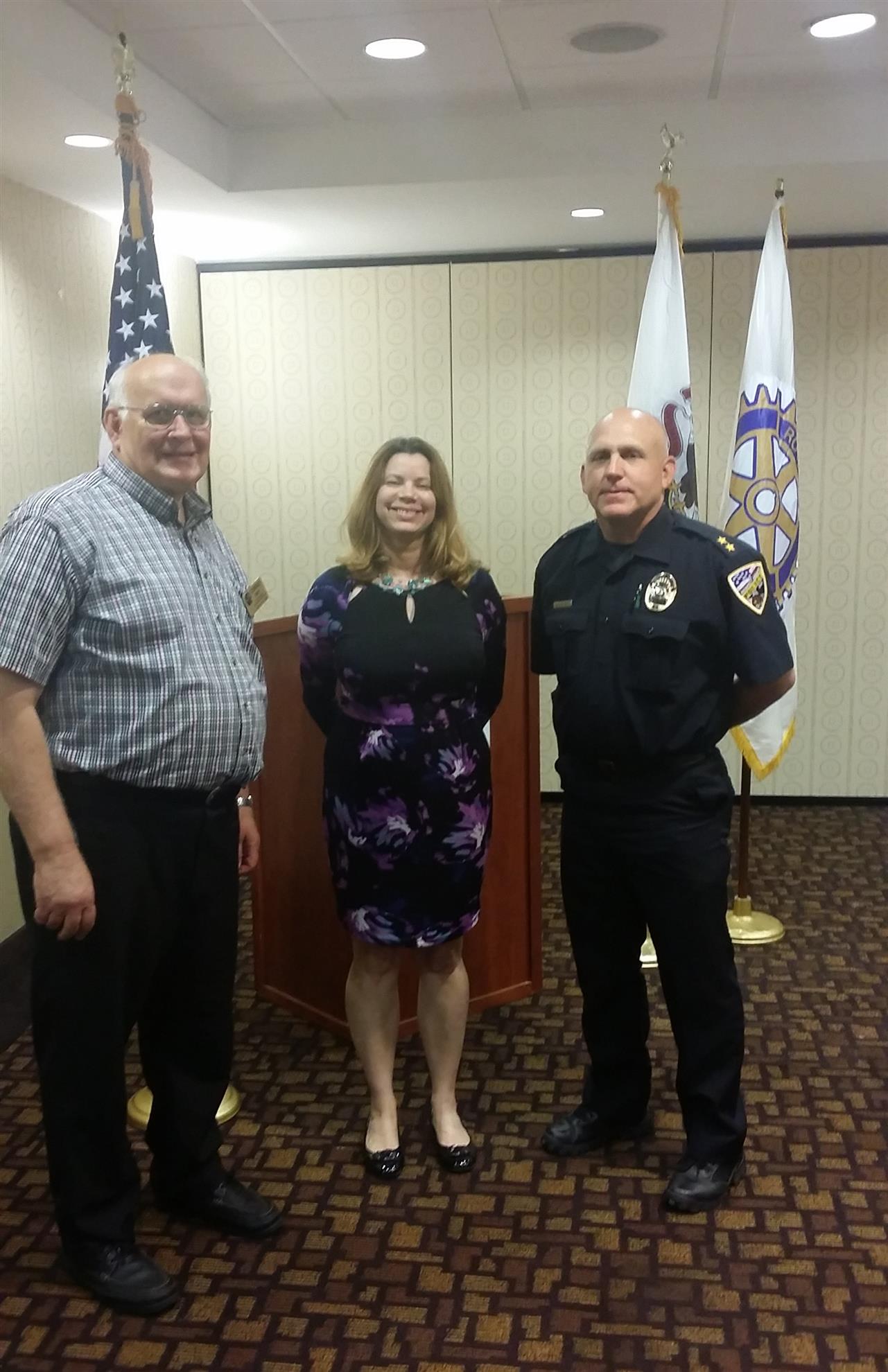September 14, 2015 Meeting
Posted by A. Todd
on Sep 14, 2015
 Rebecca Rosario is one of two victim's advocates working with the Prospect Heights Police Department. Her ability to speak Spanish and her partner's Polish fluency allow them to work with most of the community in their most comfortable language.
Rebecca Rosario is one of two victim's advocates working with the Prospect Heights Police Department. Her ability to speak Spanish and her partner's Polish fluency allow them to work with most of the community in their most comfortable language. I always enjoy the months when Jamie or Al coordinate the speaker. They generally bring in someone from their department or from a regional group the PHPD cooperates with and it's always fascinating. This week was no different.
Rebecca Rosario was our speaker today. Rebecca is a victim's advocate, meaning she helps crime victims get through their ordeal - all the way through trial and beyond if necessary. In addition to explaining what is going on in the victim's cases, Rebecca also helps them get back to a semblance of normal daily routine. Rebecca can transport the victim to or from work, if need be, help arrange child care, etc. She also works with employers, encouraging them to let people have time off to testify in court. Sometimes the employer isn't cooperative at first; but Jaime or Al are typically able to convince them of their civic duties. Most often, however, Rebecca is there to listen.
Most of the cases Rebecca works on are domestic violence. She stressed that her goal is not to impose a solution, but rather to support the victim's decision - even if it is to remain in the relationship. Rebecca told us that victims return to their abuser an average for eight times before they leave home for good. There are many reasons for this, chief among them is that the victim believes they'll be in more danger if they leave.
Rebecca and her partner have become very popular and well known throughout our community and beyond. They welcome walk-ins, who often come from other towns. These walk-ins don't necessarily have a criminal case pending, but they may have issues that the proper resources may help address. Rebecca's ability to make the necessary referrals may help prevent a situation from getting worse.
The PHPD's victim's advocate positions are funded through a federal grant and court fees. Ours was one of the first in the state but since it has proven so successful, many other communities are beginning to have them as well.